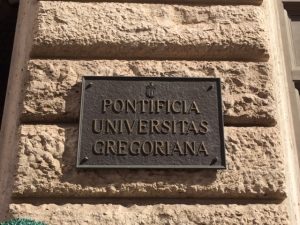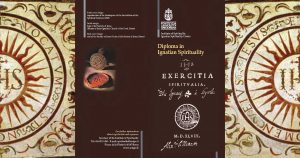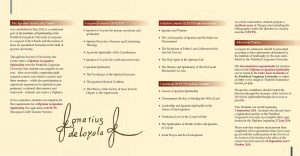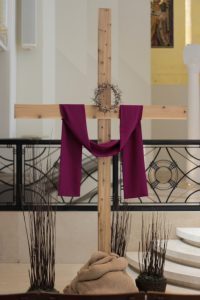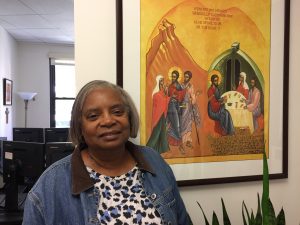By Michael Canaris, PhD (Assistant Professor at Loyola IPS, mcanaris@luc.edu). This piece was originally published in the Catholic Star Herald.
Lent has traditionally been an annual opportunity to recalibrate one’s relationship with his or her neighbor and the gifts of creation, in addition to with God. In preparation to celebrate the Paschal Mystery more fully, the church has historically provided prayerful and ascetical tools and “space” to rid ourselves of disordered attachments, so as to re-commit ourselves to the Risen Lord more emphatically. It has been clear for almost the entire history of the Christian faith that if believers do not consciously emulate the death of the Son of God in a very tangible sense in their own spiritual journeys, then the exultation of the empty tomb will ring exceedingly hollow in the subsequent Easter season.

This year, I have decided to focus my own Lenten disciplines on attuning myself more intentionally to Pope Francis’s call to integral ecology. Distancing ourselves from an addictive culture of disposability should not be a partisan issue, whether in the church or in wider society. Catholic Social Teaching has consistently made clear, at least since Pope Leo XIII’s groundbreaking document Rerum Novarum, that orienting our discipleship of Jesus around principles like the common good, solidarity, and the universal destination of created things demands that we interrogate our attitudes and lifestyles through the lens of the Gospel. This includes “practical” as well as “spiritual” matters.
Being stewards of creation mandates that Christians and all people of good will refuse to treat things as trash, and other people as things. Such a reductionism is antithetical to a holistic approach to “our common home,” this earth across which the entire human race shares our origins, experiences and telos (“goal”) in the divine plenitude, as Nostra Aetate points out.
Residents of the United States in particular are guilty of viewing the world as a spigot of limitless resources, and of generating immense quantities of refuse to sustain our relatively comfortable lifestyles. Questioning our (im)prudent use of the wonderful realities that technology and American ingenuity have brought forth in our era ought not to be a controversial initiative, if we claim to care about our children “to the seventh generation.” Limiting one’s extemporaneous use of items that cannot be recycled, his or her carbon footprint, and our collective egotistic practices that ignore their impact on wide swaths of the global population are legitimate Lenten theological aspirations. My own complicity in such patterns is acute and disgraceful, and so I feel called to examine such realities in my personal and professional life in the coming weeks.

Human beings, social creatures who exist in networks of love, responsibility, and blame, cannot experience the divine other than through our interactions in the natural world. Our liturgical prayers emphasize that a matrix exists — between God’s abounding generosity and the work of human hands, in which we collaborate with the divine to live out a sacramental reality, whereby the natural is the conduit through which we access the transcendent.
Put crudely, if there is no clean oxygen, pure water or soils protected from ultraviolet rays, there is no Blessed Sacrament, whether understood eucharistically or anthropologically, as the human being is the ultimate mysterious (saramentum is the Latin version of the Greek mysterion) recipient of God’s most gracious gift of Self.

The coming season of reflective and consequential purification provides an excellent opportunity to examine how we can better take responsibility and agency in devoting ourselves to that vivifying encounter with that world which God and unfathomable amounts of time have provided us, and which we all too frequently disregard and degrade for immediate gratification.
Originally from Collingswood, Michael M. Canaris teaches at Loyola University, Chicago.
To learn more about IPS, go to https://www.luc.edu/ips/.
For those interested in applying to IPS, go to https://gpem.luc.edu/apply/.
